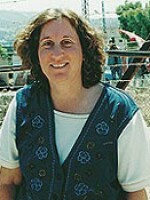STEVE INSKEEP, host:
It's MORNING EDITION from NPR News. I'm Steve Inskeep.
RENEE MONTAGNE, host:
And I'm Renee Montagne.
In the Gaza Strip, a ceasefire between the ruling Hamas and the rival Fatah movement has collapsed just two days after it began. During clashes today, at least a dozen people were killed and more than 150 wounded.
NPR's Linda Gradstein joined us from Jerusalem to tell us about the fighting.
LINDA GRADSTEIN: Well, Palestinians in Gaza say that there are running gun battles, that many people are staying inside. NPR's translator, Ahmad Abu Hamdaz(ph), said he was almost killed yesterday going home from his engagement party. He said he had to walk five kilometers dodging shooting wherever he went.
And many Palestinians in Gaza say they're afraid that Gaza could be on the brink of a civil war. They say they don't remember it ever being this bad. Hospitals say dozens of people have been injured and that there's a shortage of blood and they're calling for blood donations.
MONTAGNE: This is the latest in a series of ceasefires. What triggered its collapse?
GRADSTEIN: Well, Hamas gunmen yesterday attacked two trucks, which they said held weapons for the presidential guard, which protects Palestinian leader Mahmoud Abbas, from Fatah. Fatah says that there were no weapons in the trucks. Two of the presidential guard members were killed. It started a long gun battle in which six people were killed and dozens were wounded. And that's how the ceasefire collapsed.
MONTAGNE: And Linda, in the middle of all this, Fatah is saying that they've arrested seven Iranian weapons experts working for the ruling Hamas party. They arrested them, they say, in Gaza. Tell us that story.
GRADSTEIN: Yes, Fatah officials say that they raided the Islamic University, which is a Hamas stronghold, late last night, and that they found eight Iranian weapons experts and that one of the men committed suicide rather than be captured. Israel radio, also quoting Fatah, said at least some of the men were chemical experts.
Now Hamas officials have denied this. I have been unable to independently confirm it. There's a few possibilities. One is that it's true; al-Jazeera is also reporting it, quoting unnamed Fatah officials. However, we haven't seen any of the photographs of the men or have their names published.
Hamas says it's simply Fatah propaganda, trying to turn the West even more against Hamas by bringing in the Iranian element. Israeli officials say that Iran has been both funding Hamas and involved in training Hamas in the West Bank and Gaza, but they also could not confirm this specific incident.
MONTAGNE: But just quickly, to put it in perspective, is this a new turn of events, that one would be reporting Iranian personnel on Palestinian territory?
GRADSTEIN: Yes. If it does turn out to be true, then it would be a significant escalation of Iran's role in Gaza. Although Israel says that Iran has been involved in funding and training for Hamas in Gaza and for Hezbollah in South Lebanon for some time.
MONTAGNE: Well, then again, as you say, there's also the possibility of it being something like propaganda.
GRADSTEIN: It is possible.
MONTAGNE: At the same time, there have been clashes between Palestinians and Israeli forces in the West Bank.
GRADSTEIN: Yes, Israeli soldiers killed two members of a Fatah-affiliated security service today in a village near Ramallah. They said it was a misunderstanding, that they didn't realize that the men who had guns were actually security officials.
Yesterday, four Palestinians were killed in three separate incidents in the West Bank. Three of them were gunmen. One of them was a teenager trying to cut through the barbed wire of the barrier that Israel is building in and around the West Bank.
MONTAGNE: And then all of this comes as Washington today hosts a meeting of what's called the Quartet - that's the U.N., the U.S., Russia and the EU - all of which have an interest in sorting out the Israeli-Palestinian question.
GRADSTEIN: Yes, the Quartet is meeting in Washington at the request of U.S. Secretary of State Condoleezza Rice and she said she's going to talk about an upcoming summit with Israeli Prime Minister Ehud Olmert, Palestinian leader Mahmoud Abbas. They're trying to discuss ways of getting the Israeli-Palestinian peace process back on track.
But with fighting between Hamas and Fatah in Gaza, and with the Israeli government being seen as fairly weak, Israeli and Palestinian analysts say the chances of a real new Middle East peace push seem limited at this point at best.
MONTAGNE: Linda, thanks very much.
GRADSTEIN: Thank you, Renee.
MONTAGNE: NPR's Linda Gradstein speaking from Jerusalem. Transcript provided by NPR, Copyright NPR.







